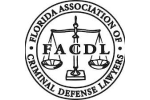to Save Yours
DUI Checkpoints
Respected Tampa DUI Defense Lawyer Helping Keep Clients on the Road and Out of Jail
DUI checkpoints are pre-arranged DUI enforcement programs designed to deter impaired driving and punish those who are operating a vehicle under the influence of drugs or alcohol. And while these checkpoints are legal under Florida law, police departments must follow certain protocols to ensure the checkpoint doesn’t infringe on motorists’ constitutional rights. If police officers arrest you during an illegal checkpoint, any evidence they recover during the DUI stop will be inadmissible at trial, meaning the prosecution may be forced to withdraw the case against you.
At the Mayberry Law Firm, our Tampa DUI defense lawyer has extensive experience challenging DUI checkpoints throughout Hillsborough County. We understand what makes a checkpoint legal and how to establish that law enforcement failed to comply with the safeguards needed to protect your constitutional rights.
Are DUI Checkpoints Legal in Tampa?
Yes, not only are DUI checkpoints legal in Tampa, but they are also regularly used by law enforcement to catch impaired drivers. The legality of Florida DUI checkpoints is based on both state and federal law, which have found that the public safety benefits of reducing drunk driving outweigh the intrusion of individual privacy rights at these checkpoints. However, DUI checkpoints must comply with certain requirements to be legal. More specifically, these include having a neutral and predetermined method for stopping vehicles (for example, every fifth vehicle), proper signage, and advance public notice of the checkpoint’s location and time. Additionally, the decision to establish a checkpoint and its operational plan must be made by supervisory law enforcement officers, not officers in the field.
Where Is Notice Provided of Upcoming Tampa DUI Checkpoints?
Prior to setting up a DUI checkpoint, law enforcement agencies in Hillsborough County are required to inform the public about when and where the checkpoint will take place. This advance notification is typically disseminated through various local media channels, including newspapers and TV stations, in addition to social media platforms.
What Is Required of Drivers at a Florida DUI Checkpoint?
At a DUI checkpoint, you are required to comply with law enforcement instructions, which generally include slowing down, stopping at the checkpoint, and engaging with officers. Drivers may be asked to provide their driver’s license, vehicle registration, and proof of insurance. These requests must be followed. Law enforcement officers may also engage in a brief conversation with you in an effort to determine whether you are any signs of impairment, such as the odor of alcohol, slurred speech, or visible alcohol containers. However, the nature of these stops must be brief, and you are under no obligation to make small talk with the officer or even answer questions beyond those needed to identify yourself. If an officer suspects you are under the influence, you may be asked to pull over to a different area for further evaluation, which could include field sobriety exercises and a breathalyzer test. That said, it is critically important to understand that while you must comply with officers’ lawful orders, you also retain certain rights, including the right to remain silent and the right to refuse consent to a search of your vehicle without a warrant or probable cause.
Can You Challenge the Legality of a DUI Checkpoint?
Yes, you can challenge the legality of a DUI checkpoint in Florida. The challenge would typically focus on whether the checkpoint met the legal requirements established by state law and constitutional protections. For a DUI checkpoint to be considered legal in Florida, it must comply with strict guidelines concerning its operation, including the method of determining which vehicles will be stopped, whether adequate notice was provided, and the presence of supervisory personnel to oversee its operation. Additionally, the checkpoint must not excessively intrude on drivers’ privacy and must have a valid public safety objective.
If a DUI checkpoint fails to meet these criteria, any evidence obtained as a result of the stop may be subject to suppression, meaning it cannot be used against you in court. Challenges to the legality of a checkpoint are often raised through pre-trial motions, where your Tampa DUI defense attorney argues that the checkpoint was not conducted in accordance with the law, potentially leading to the dismissal of charges or, at the very least, weakening the prosecution’s case.
Are You Facing Tampa DUI Charges After Being Arrested at a Sobriety Checkpoint?
If you were recently arrested and charged with a DUI after failing a breath test or blood test at a DUI checkpoint, the Mayberry Law Firm can help. At our Tampa DUI defense firm, we take great pride in holding law enforcement accountable when they overstep their lawful authority. We’re familiar with the best DUI defenses, when they apply, and how to use them to ensure your case ends in the best result possible. To learn more, and to schedule a free consultation today, call Attorney Mayberry at (813) 444-7435. You can also connect with us through our secure online contact form.














